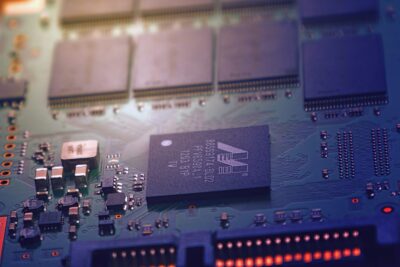Revolutionizing Electric Flight: Advances in Battery Technology
Driving Innovation in Aviation
Advances in battery technology, including lithium-ion and solid-state batteries, are driving innovation in aviation by enabling the storage of sufficient energy for electric flight operations. These breakthroughs represent a significant step forward in the quest for sustainable air travel, offering enhanced efficiency, reduced emissions, and greater flexibility. In regions like Saudi Arabia and the UAE, where environmental sustainability is a top priority, the adoption of advanced battery technology is poised to transform the aviation industry and pave the way for a greener future.
Lithium-ion batteries, known for their high energy density and long cycle life, are increasingly being used to power electric aircraft. These batteries provide the necessary energy storage capacity to support extended flight durations and increased payload capacities. Moreover, solid-state batteries, which offer improved safety and stability compared to traditional lithium-ion batteries, are emerging as a promising alternative for electric aviation. With their higher energy density and faster charging capabilities, solid-state batteries have the potential to further enhance the performance and efficiency of electric aircraft.
Business Opportunities and Market Dynamics
The adoption of advanced battery technology in aviation presents significant business opportunities and market dynamics for companies in the sector. For business executives and entrepreneurs, investing in the development and integration of these technologies can unlock new markets and drive revenue growth. Airlines that embrace electric flight operations can differentiate themselves in the market and attract environmentally conscious travelers seeking sustainable travel options.
Furthermore, the transition to electric aviation can lead to cost savings and operational efficiencies for airlines and aircraft manufacturers. By reducing reliance on fossil fuels and mitigating environmental impact, electric aircraft powered by advanced battery technology offer a compelling value proposition for businesses. This economic sustainability is particularly relevant in regions like Riyadh and Dubai, where there is a strong emphasis on diversifying energy sources and promoting green technologies. Additionally, the demand for electric aircraft and associated technologies is expected to grow as regulatory frameworks evolve and consumer preferences shift towards sustainability.
Challenges and Future Outlook
Despite the promise of advances in battery technology, several challenges and considerations must be addressed to realize their full potential in aviation. One challenge is the need for continued research and development to optimize battery performance and safety for aviation applications. Ensuring the reliability and durability of batteries under demanding operating conditions is essential to gaining regulatory approval and customer confidence.
Furthermore, infrastructure development and charging infrastructure are critical factors in the widespread adoption of electric aviation. Building a robust network of charging stations and support facilities is necessary to enable long-distance electric flight operations and facilitate the transition to sustainable aviation. Collaborative efforts between industry stakeholders, government agencies, and infrastructure providers are needed to address these challenges and create an enabling environment for electric aviation.
Looking ahead, the future of aviation is bright with possibilities as advances in battery technology continue to drive innovation and shape the industry’s trajectory. By leveraging the power of advanced batteries, the aviation sector can achieve greater sustainability, efficiency, and resilience. With a concerted focus on research, collaboration, and investment, electric aviation powered by advanced battery technology has the potential to revolutionize air travel and usher in a new era of sustainable transportation.
Conclusion: Pioneering Sustainable Aviation
In conclusion, advances in battery technology are transforming the aviation industry and paving the way for sustainable air travel. For business executives, mid-level managers, and entrepreneurs in Saudi Arabia, the UAE, and beyond, embracing these innovations is essential to staying competitive and driving success in a rapidly evolving market. By investing in advanced battery technology and supporting infrastructure, businesses can position themselves at the forefront of electric aviation and contribute to a cleaner, greener future for air travel.
As the industry continues to embrace electric aviation, collaboration and innovation will be key to overcoming challenges and realizing the full potential of advanced battery technology. By working together to address technical, regulatory, and operational hurdles, stakeholders can accelerate the transition to sustainable aviation and unlock new opportunities for growth and innovation. With a shared commitment to environmental stewardship and technological advancement, the aviation industry can lead the way towards a brighter, more sustainable future in the skies.
In addition to their application in aviation, advances in battery technology have far-reaching implications for other industries and sectors. From electric vehicles to renewable energy storage systems, the versatility and scalability of advanced batteries make them indispensable in the transition to a low-carbon economy. By leveraging synergies across different sectors and fostering cross-industry collaboration, stakeholders can maximize the impact of battery technology and accelerate progress towards a more sustainable future for all.
#AdvancesinBatteryTechnology #LithiumIonBatteries #SolidStateBatteries #ElectricFlightOperations #ModernTechnology #BusinessSuccess #Leadership #ProjectManagement #SaudiArabia #UAE #Riyadh #Dubai #SustainableAviation























